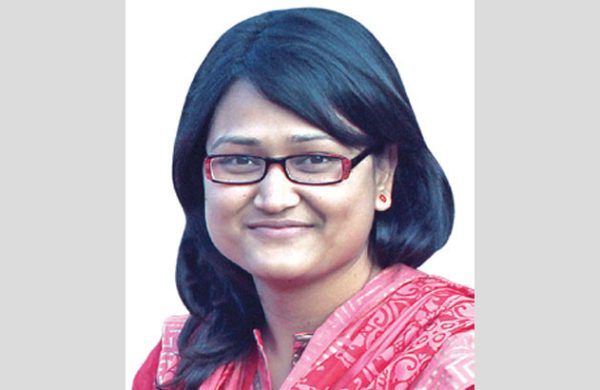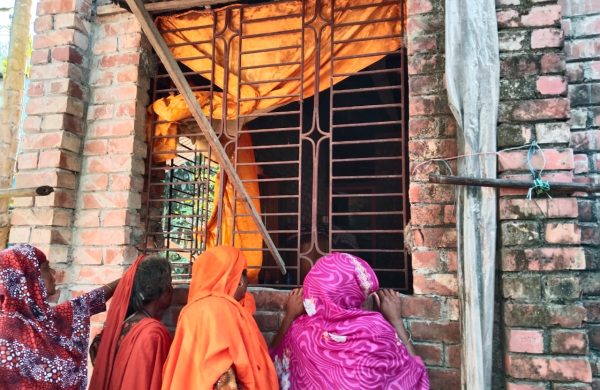Migrants: Promise of equal treatment more than policy
- Update Time : Saturday, August 16, 2025

—Kaniz Kakon—
When the news broke that Bangladeshi workers in Malaysia would now have the same social security benefits as local workers, it felt like more than a line in a press briefing; it felt like a shift in how we choose to see our people abroad. For years, these men and women have built cities they did not grow up in, cared for families they would never meet, and kept their own loved ones afloat through long-distance sacrifice. They have stood under the Malaysian sun in construction sites, worked overnight shifts in factories, and cleaned homes far away from their own. Yet too often, their rights were thin on the ground. Now, the promise of equal protection, the ability to lodge complaints in Bangla, and the path to regularize undocumented workers offers something rare in the world of migration: a recognition that dignity should not vanish at the border.
This new agreement is not just about welfare benefits. It signals that Bangladesh’s approach to labour migration is beginning to move beyond the idea of exporting workers for remittances and toward negotiating a fairer deal for the people who leave. For decades, the narrative was dominated by numbers — how much foreign exchange they send, how much GDP they sustain, but their working conditions were often seen as secondary. Opening roles in caregiving and security hint at a diversification of opportunities, away from the toughest and most hazardous jobs in construction or plantation labour. The proposed “Graduate Plus” plan, which can make Bangladeshi students work legally in Malaysia, could keep young people from being pushed into irregular work to make ends meet. It could also encourage more students to choose Malaysia for higher education, knowing they will not be forced into the shadows to earn a living.
Still, a promise on paper is not the same as a right in practice. We know that many migrants have faced wage theft, unsafe work, and no clear way to complain without fear of losing their jobs. One worker I once met in Kuala Lumpur, Aminul, had been in Malaysia for six years. He was soft-spoken, his hands rough from mixing cement. For three of those years, he worked without a valid permit after his recruitment agency disappeared with his renewal fees. He told me how he avoided hospitals for fear of being reported, even when a steel rod injured his leg. “I thought I would be sent back with nothing,” he said. “Now, if they make us legal and give us the same benefits, maybe I can walk into a clinic without looking over my shoulder.” For Aminul, the Bangla-language complaint system is not a convenience; it is the difference between silent suffering and the ability to stand up for himself.
Regularisation also carries its challenges. For workers who entered Malaysia without proper documentation, sometimes through no fault of their own, the chance to become legal is a rare second beginning. But if the process is mired in bureaucracy, or if middlemen inflate costs, it risks trapping migrants in yet another cycle of debt. Past regularisation drives in other countries have shown that without clear rules and direct government oversight, the very people these programmes are meant to help can end up exploited yet again. Equal social security must be more than a symbolic inclusion in law; it must be an accessible, corruption-free process, with timely payouts and no quiet exclusions for migrant workers.
For Bangladesh, this moment is also a chance to rethink how we define the value of our migrant workers. They have long been seen as pillars of our foreign exchange reserves, but their human rights and working conditions have not always received equal weight in policy discussions. This agreement has the potential to set a precedent. If parity in social security can be secured in Malaysia, why not in the Gulf states, Singapore, or beyond? Linking labour protections to future trade agreements, as is being discussed with the Malaysia and Bangladesh Free Trade Agreement, could make fairness a standard part of economic cooperation, not an afterthought. Such negotiations would mean that when we sit down with foreign governments, we are not only discussing commodities and tariffs but also the dignity, safety, and future of our citizens.
The symbolism here matters as much as the substance. For too long, migration stories have been told through economic charts and policy jargon, not through the lives of the people who leave. The construction worker who spends his lunch break on a video call with his children back home, the domestic helper who learns to cook a whole new cuisine while quietly sending money for her siblings’ school fees, the student who juggles classes and night shifts to keep from burdening her family, these are the human faces of what we call “labour migration.” This agreement tells them, in policy language, that their sacrifices have been noticed, that their rights matter.
In the end, this deal is a door, one that opens to a different way of thinking about migration. It’s about seeing the Bangladeshi abroad not as a temporary earner but as a lasting representative of the country’s worth. It’s about moving from gratitude for any job offer to a confident insistence on fairness. Whether this shift takes root will depend on how seriously both governments follow through, and on whether we, as a society, keep watch. For the millions who have left home to build a better life for themselves and their families, the promise of equal treatment is more than policy; it’s a quiet affirmation that their labour, and their lives matter.
—————————————————————————-
The writer is an Assistant Professor in the Department of Philosophy at IUBAT and pursuing a Master’s in Human Rights and Multiculturalism at University of South Eastern Norway



















